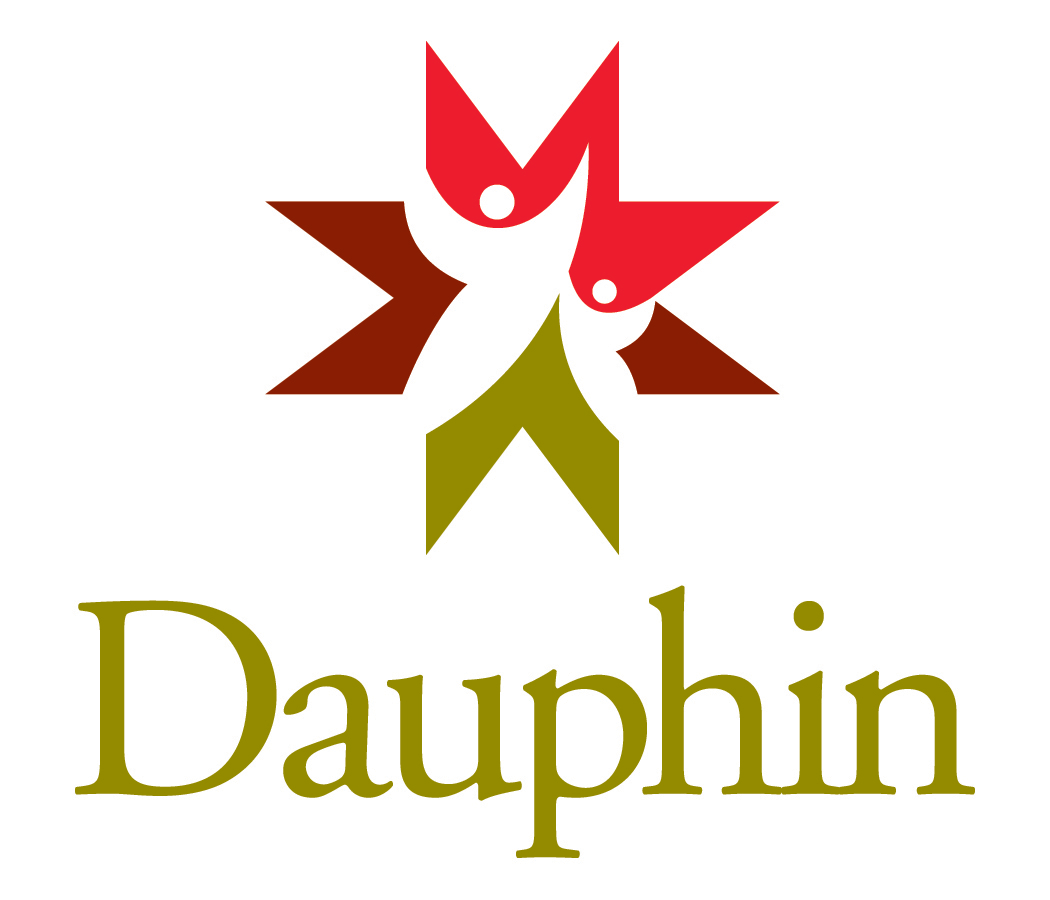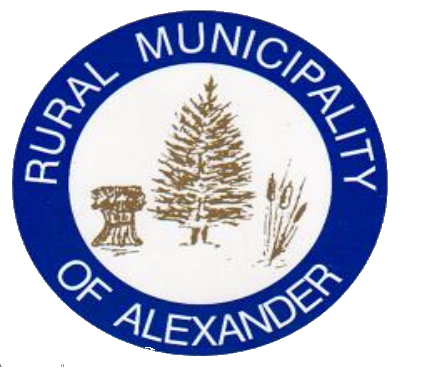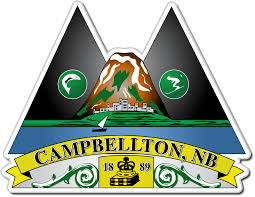Les municipalités et les services publics s'unissent pour renforcer la résilience des communautés
Municipalities across Canada are facing extreme climate change impacts, such as high winds, ice storms, floods, droughts, and forest fires. At the same time, almost 90% of Canadian energy utilities have been significantly impacted by a weather event in the last decade. Both municipal systems and energy distribution systems are essential, interconnected, and must work together to maintain the resilience of a community.
Despite concerns that climate change and weather-related events threaten the reliability and resilience of Canadian energy distribution services, there remains limited tools and assessment processes to help local governments and utilities collaboratively and effectively plan to reduce risks and costs to residents and businesses.
QUEST’s Municipalities and Utilities Partnering for Community Resilience initiative aimed to foster collaboration between municipalities, energy utilities, and other key community stakeholders to undertake a climate risk and vulnerability assessment using several tools, and to work together to select climate adaptation measures, including: adopting policies and practices, augmenting risk-based decision-making, improving infrastructure, land-use planning, asset planning, energy planning and reliability measures, increasing public education, communication, coordination, and emergency preparedness and response during prolonged power outages.
Community Resilience Reports
Lessons Learned from Twelve Canadian Communities
This report presents key lessons learned from the twelve municipalities and their energy utilities that participated in this initiative including:
- Municipalities’ most common strengths and vulnerabilities to specific climate hazards;
- Key recommendations to advance climate adaptation, strengthen the resilience of energy systems, and augment emergency preparedness plans;
- Key challenges to the development and implementation of climate adaptation measures.
Community Resilience Mini-guide
Building on lessons learned, this mini-guide provides:
- Tips and resources communities interested in becoming more resilient, developing, implementing or reviewing their climate adaptation, their climate planning strategy and their emergency responses, with a specific lens on energy infrastructure.
- Tips to develop an effective education communications plan with some examples of key messages by hazard type
- Possible funding strategies to secure financial resources for the development and implementation of the Climate Adaptation Plan.
Community Resilience Projects Phases
Phase 1: Climate risk and vulnerability assessment
QUEST has led the first workshop with every municipality by:
- Presenting emergency management, insurance sector, and energy utilities;
- Facilitating three table-top discussions and exercises (10 Essentials Exercise, Resilience Mapping Exercise, and Action Planning Exercise);
- Engaging municipal staff, energy utilities, emergency management, provincial staff, insurance providers and other local stakeholders.
That enabled the municipalities to identify hazards, risks, and vulnerabilities while simultaneously considering opportunities to both reduce risks and enhance community environmental performance. Each participating community received its Climate Risk and Vulnerability Assessment Report.
Phase 2: Identification of place-specific recommendations to address identified weaknesses
In a second workshop, QUEST presented a set of recommendations tailored to the context and needs of each community. Through a table-top exercise, participants selected among the recommendations, discussed what was needed, assigned timeline, priority, cost, lead department, etc. using a spreadsheet. That enabled participants to select recommendations based on the type of hazards identified in their community, prioritize them, and assign a cost, a timeline, and a department lead. Each participating community received its Resilience Recommendation Report at the end of 2019.
Phase 3: Networking and knowledge exchange
Monthly call meetings have been scheduled with the project team to share their initiatives and questions with the group. Peer-learning sessions were completed throughout three webinars to introduce the project, present key lessons from the first workshop, and the lessons learned presented in this report.
Learn more about the methodology on the Building Community Resilience report.
Enregistrement du webinaire
QUEST held a webinar to present its report on Building Community Resilience: Key Lessons from Twelve Canadian Communities, on Feb. 20th, 2020.
Regardez la vidéo ci-dessous ou téléchargez la présentation du webinaire en PDF.
About the Presenters:

Aïda Nciri
Manager, Policy & Research
Bio
Passionnée par les systèmes énergétiques sobres en carbone et résilients, Aïda est la responsable de QUEST en tant que Senior Advisory, Project and Service Advisory. Basée à Calgary, en Alberta, elle gère et exécute des projets faisant progresser les collectivités énergétiques intelligentes au Canada. Avec plus de sept années d'expérience dans la recherche et le conseil, Aïda apporte une solide expertise interdisciplinaire dans les systèmes énergétiques, la gouvernance urbaine et les politiques climatiques et énergétiques. Aïda a de l'expérience dans les techniques de facilitation et d'engagement communautaire qui réunissent des parties prenantes de divers horizons pour développer des solutions et des initiatives collaboratives en matière de durabilité urbaine. Elle a travaillé avec des organismes sans but lucratif, des établissements universitaires et des organismes institutionnels, dont Energy Efficiency Alberta. Bilingue en français et en anglais, Aïda est titulaire d'un Master en politiques publiques de Sciences-Po Paris (France) et d'un doctorat de l'Université de Calgary. Ses recherches ont analysé la construction de politiques énergétiques et climatiques élaborées par les trois niveaux de gouvernement et leur impact sur la diffusion de la production décentralisée, et plus particulièrement sur les systèmes énergétiques de quartier.

Eddie Oldfield
Chef principal, Projets et services consultatifs
Bio
Since 1998, Eddie Oldfield coordinated initiatives focused on local sustainability, GHG emissions reduction, clean energy and efficiency, transportation/fleets, climate adaptation and resilience planning. Eddie Chairs the QUEST NB-PEI Caucus, working to advance Smart Energy Communities, and is Senior Lead, Projects and Advisory Services, QUEST. In this role, he helps deliver regional and national projects and supports FCM Partners for Climate Protection members in Atlantic Canada. Eddie also co-chairs the Open Geospatial Consortium (OGC)’s Energy and Utilities working group and is a Charter member of the OGC Smart Cities working group. He led development of innovative web-based map services & distributed spatial data infrastructure, to support decision making including for a cross-border pandemic exercise in 2007. He is a board member of the Canadian Risk and Hazards Network, and participated in the Resilient Communities Working Group of the National Platform for Disaster Risk Reduction. Eddie holds a BA (2008), with Interdisciplinary Honours (Sociology, Political Science, Environment, Science & Technology) from St. Thomas University, and owns and operates Spatial Quest based in Fredericton NB.
Municipalités participantes
The following municipalities participated in the Municipalities and Utilities Partnering for Community Resilience Initiative:

Charlottetown, Prince Edward Island
En savoir plus
Charlottetown est la capitale florissante de l'Île-du-Prince-Édouard, située sur la rive sud. Il a une population d'environ 36 000 habitants et est connu comme le «lieu de naissance de la Confédération» après la conférence historique de Charlottetown en 1864 qui a conduit à la Confédération. Comme dans de nombreuses villes côtières, Charlottetown dispose d'infrastructures sur le front de mer susceptibles d'inondation et la municipalité continue de faire face aux effets du changement climatique.

Dauphin, Manitoba
En savoir plus
Dauphin est une petite ville nichée entre le parc national du Mont-Riding et le parc provincial Duck Mountain. L'emplacement offre diverses possibilités de s'adonner à la nature, que ce soit en hiver ou en été. La communauté est l'hôte de plusieurs festivals importants, dont le countryfest de Dauphin et le festival national ukrainien du Canada. Malgré sa petite taille, Dauphin a de grandes ambitions de devenir la ville la plus durable du Manitoba. Notre ville est une plaque tournante régionale, ce qui en fait un lieu idéal pour les personnes cherchant à trouver un équilibre entre travail et loisirs.

Summerside, Prince Edward Island
En savoir plus
Summerside, située dans la belle province de l’Île-du-Prince-Édouard, possède un noyau urbain compact, bercé par un paysage rural idyllique et des rivages baignés par une mer calme et chaude. Il offre une combinaison unique de confort et de sérénité. La communauté offre à ses quelque 15 000 résidents et visiteurs des quartiers commerçants pittoresques, des théâtres en direct, de belles plages, ainsi que divers restaurants, une communauté d’affaires diversifiée et un vaste potentiel d’investissement et d’emploi. Summerside est bien connu des investisseurs potentiels, des sélectionneurs de sites et des chefs d’entreprise. Pour tous, c’est «la ville à surveiller» pour la croissance et l’excellence dans les infrastructures.

Stratford, Prince Edward Island
En savoir plus
La ville de Stratford est une communauté en expansion de plus de 10 000 habitants et est située sur une péninsule, juste au sud de Charlottetown, la capitale de la province. Stratford est entourée de magnifiques points de vue sur l'eau, délimités par Fullerton's Marsh, la rivière Hillsborough, le port de Charlottetown et la baie de Hillsborough. La route transcanadienne relie l'extrémité est de la province à Charlottetown et divise la ville d'est en ouest en deux avec le pont de Hillsborough reliant Stratford à Charlottetown. Le paysage de la région de Stratford varie considérablement, avec des altitudes atteignant 88,7 mètres le long de la côte sud de Stratford; avec des zones de forte pente adjacentes à plusieurs affluents, collines, plaines, un nombre important de cours d’eau et de kilomètres de côtes. La ville de Stratford est reconnue comme un chef de file pour sa position proactive en matière de changement climatique et de durabilité, ayant intégré les politiques d'utilisation des sols en matière de développement durable depuis 2012.

Woodstock, New Brunswick
En savoir plus
La ville de Woodstock se trouve à 100 kilomètres à l’ouest de la capitale provinciale de Fredericton, à 300 kilomètres de la frontière de la Nouvelle-Écosse, à 200 kilomètres de la frontière québécoise et à 25 kilomètres de la frontière du Maine. Sise sur les rives de la rivière Meduxnekeag et du fleuve Saint-Jean, elle se trouve à la croisée de l’autoroute transcanadienne (sorties 185 et 188) et de l’autoroute américaine I-95 (sortie 12). Le 1er mai 1856, Woodstock est devenue la première ville incorporée au Nouveau-Brunswick. On y trouve des maisons, des églises et des bâtiments victoriens parmi les plus élégants au pays. Dynamique et prospère, la ville de Woodstock est reconnue comme un centre de services dans la vallée du Haut-Saint-Jean. Elle sert également de pôle commercial régional pour les secteurs agricole, forestier et des transports.

Municipalité rurale d'Alexander, Manitoba
En savoir plus
La municipalité rurale d'Alexander se trouve à seulement 113 km au nord-est de Winnipeg. S'étendant de la côte est du lac Winnipeg vers l'est jusqu'à la Whiteshell et au nord jusqu'au Bouclier canadien, cette région de 1 521 km 2. La région est desservie par six autoroutes modernes. Sa population de 3000 personnes toute l'année explose à plus de 20 000 en été. Il offre des parcs, des plages, des forêts, de l'agriculture, de l'industrie et les commodités des milieux urbains et ruraux, et constitue le centre hydroélectrique du Manitoba. Alexander se trouve au cœur de la région des chalets du Manitoba. De nombreux habitants de Winnipeg se sont rassemblés dans la région pendant les mois d'été pour fuir la ville et profiter de la beauté naturelle de la région. La communauté comprend l'impact que peuvent avoir les phénomènes météorologiques naturels et apprécie beaucoup l'opportunité de renforcer sa capacité d'adaptation au changement climatique.

Okotoks, Alberta
En savoir plus
Nestled along the Sheep River valley in the heart of the Alberta Foothills, the Town of Okotoks is a young, vibrant and friendly community of nearly 30,000 residents. Okotoks is flanked by the front range of the Rocky Mountains to the west, and is situated only 18 kilometres south of Calgary’s city limits. Okotoks is well known for its environmental efforts and is now pursuing a plan of managed sustainable growth that builds upon this reputation.

Saint John, New Brunswick
En savoir plus
Saint John, New Brunswick – Canada’s Original City – was incorporated 1785 and has grown into a historically-rich and culturally diverse city. The city is home to an “uptown” core, where historic buildings dot the banks of the St. John River and the Saint John Harbour – the Bay of Fundy is our front door. A city of neighbourhoods, our citizens enjoy a unique quality of life with an abundance of housing options, a thriving arts and cultural community and easy access to a variety of exceptional recreational facilities and green spaces.

Tracadie, New Brunswick
En savoir plus
Situated in the heart of the Acadian Peninsula, Tracadie is surrounded by two rivers neighboring the Gulf of Saint Lawrence. This makes it an ideal spot for water activities, of course, but you will also find here nature trails both for walking and cycling. The beach is only a few minutes away, at the Val-Comeau Provincial Park.

Campbellton, New Brunswick
En savoir plus
Campbellton is a great place to live and we are working to maintain and improve this while protecting the region’s special heritage. We are building the platform for a city that will continue to be recognized for its quality of life, educational opportunities and social and cultural diversity.

Cochrane, Alberta
En savoir plus
The Town of Cochrane is a vibrant, family-friendly community just 20 minutes west of Calgary, nestled in a legendary valley steeped in Native and pioneer lore, with a breathtaking view of the majestic Rocky Mountains. Our world-famous ranching history is still reflected in the town’s architecture and our friendly people; Cochrane remains committed to preserving its small-town feel, even though we are one of the fastest growing communities in Alberta.

Devon, Alberta
En savoir plus
Located along the banks of the scenic North Saskatchewan River and about 20 km southwest of Edmonton, the Town of Devon is a community that prides itself in providing a high quality of life for its residents. With beautiful natural areas and many recreational opportunities, the Town of Devon’s 6,700 residents are proud to call Devon home. Devon is an environmentally conscious and ambitious community that has set a long-term goal of becoming a net zero-energy municipality. The Town has already completed a number of contributing initiatives with more initiatives in progress, or planned for the near future, as Devon strives to reach this goal through strategic planning and innovation.
Supporteurs de projet
This project is made possible by support from the Federation of Canadian Municipalities (FCM) Municipalities for Climate Innovation Program (MCIP) and Natural Resources Canada.
En savoir plus sur Services de conseil de QUEST. Offres QUEST Ateliers de résilience aux communautés qui cherchent à comprendre comment les risques climatiques et les vulnérabilités affectent nos systèmes énergétiques.
Autres projets
QUEST mène et prépare une recherche appliquée de pointe pour habiliter les praticiens et les décideurs avec les outils dont ils ont besoin pour faire progresser les communautés énergétiques intelligentes. En savoir plus sur nos projets:



